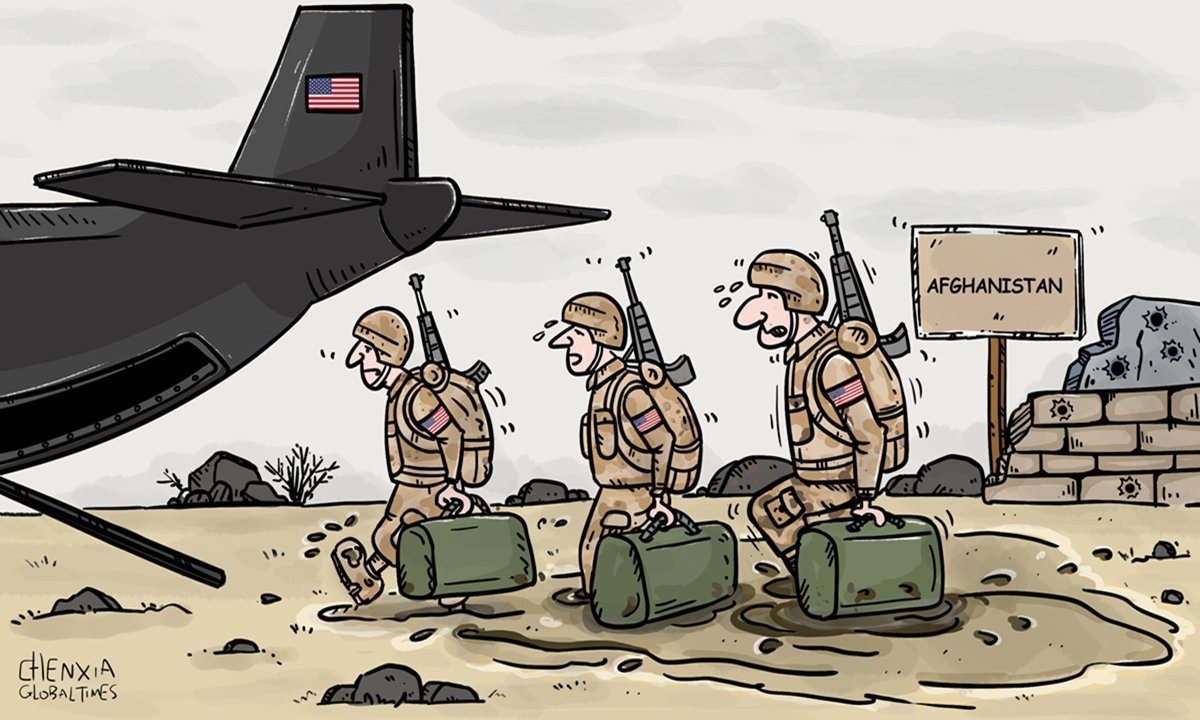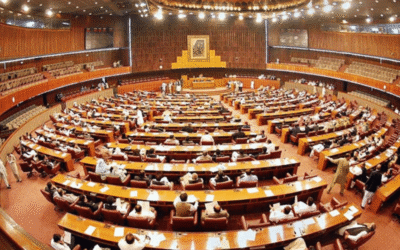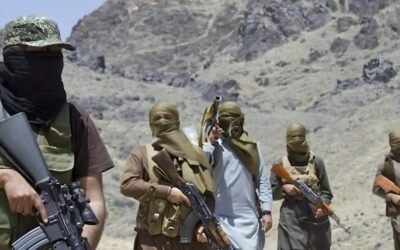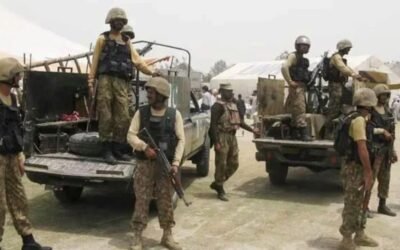The security establishment in Pakistan views a peaceful, stable Afghanistan as vital to its interests. As former Foreign Minister Bilawal Bhutto Zardari emphasized, “a peaceful, stable and prosperous Afghanistan is a priority for Pakistan.” The subsequent Taliban takeover and U.S. withdrawal (Aug 2021) prompted Islamabad to defend its borders and engage with the Taliban politically actively.

Source: Afghanistan International
The military has intensified its Western Border Management Regime by completing 94 percent of the Durand Line fence and significantly strengthening frontier fortifications. As ex-DG ISPR, Major General Babar Iftikhar explained, the fence (including 1200 posts and 377 on the Afghan side) will “continue as planned” to prevent infiltration. Practically, Pakistan has built hundreds of new forts and check-posts (673 in total) and expanded dozens of new wings in the Frontier Corps to fortify the borders of Khyber Pakhtunkhwa and Balochistan. This relocation, along with clearance operations in North Waziristan, reflects a clear policy: all activities under the Western Border Management Regime will be carried out to their logical conclusion, leaving no loophole for militants to exploit.
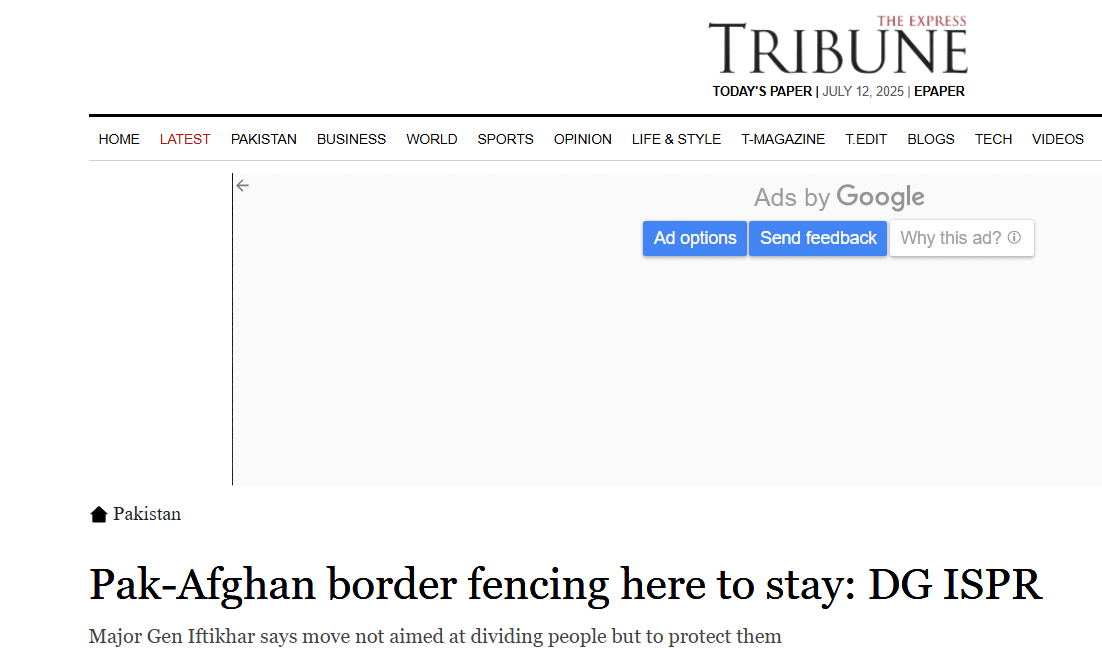
Source: The Express Tribune
Counterterrorism and Internal Security
The withdrawal increased the tension on transboundary terrorism, but the forces of Pakistan are excessively active in their counterterror policy. At the request of the Afghan Taliban, Islamabad initially agreed to a ceasefire agreement of one month with the Fitna-al-Khawarij (FAK), which later resumed daily operations after FAK demands were found to be non-negotiable. ISPR chief spoke straight, saying the FAK “was not monolithic” and “our fight will continue till we get rid of this menace”.

Source: The Express Tribune
Doctrinally, the army of Pakistan has demonstrated readiness to attempt peace negotiations where possible, but will “take them [FAK] head on” if violence continues. Such a consistency of approach to countering terror, even in a new regime in Kabul, shows that Pakistan’s defense policy is not about appeasing terror, but getting rid of it domestically. Pakistani officers mention this directly as securing the Afghan border is the direct access to the regional stability, as the uncontrolled conflict in Afghanistan would affect the security and safety of Pakistan directly.
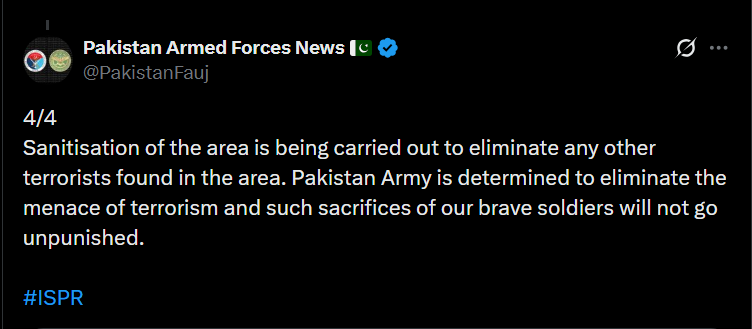
Source: X/@pakistanfauj
Diplomacy and Regional Ties
Initial military efforts in this regard were accompanied by an increase in Islamabad’s diplomatic involvement with the new Afghan leaders (and additional neighbors) whilst safeguarding against threats to its interests with caution. Pakistan is, naturally, still equivocal about formally recognizing the Taliban regime, but it continues to enjoy strong links and even resumed diplomatic relations amid trilateral negotiations in Beijing. Practically, Pakistan considers the Taliban as a security partner with the understanding that they will be recognized as soon as important matters are addressed. Specifically, the Pakistani leaders continue to cite the “unresolved issue of terrorist sanctuaries in Afghanistan”. They have also hailed concrete Taliban actions (e.g., crackdowns on Afghans joining TTP, and the declaration that no jihad against Pakistan exists) as a positive.
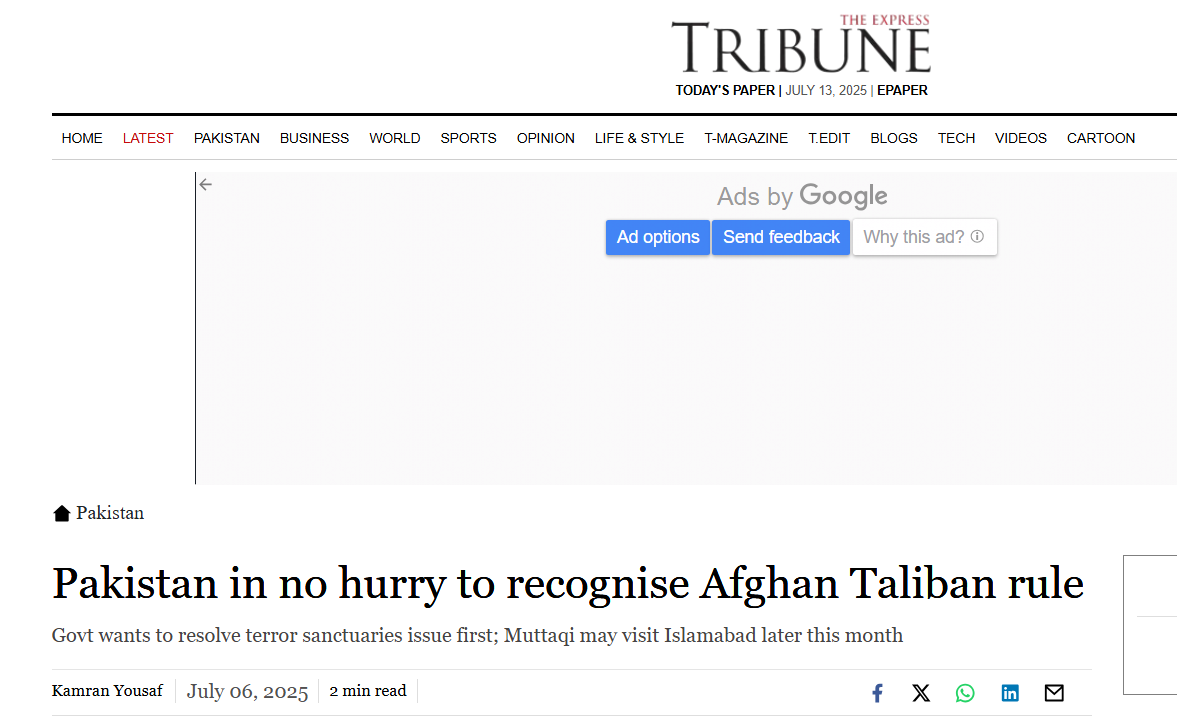
Source: The Tribune Express
Since high-level visits (e.g., FM Ishaq Dar to Kabul), the relationship has improved with each side recognizing common areas of interest in refugees, trade, and terrorism. Pakistan persists in its demands that Afghanistan should never allow the use of its sovereign territory to attack Pakistani territory, a demand that Islamabad always speaks of as a matter of right, a “legitimate expectation”, even as it publicly champions an Afghan-led peace process.
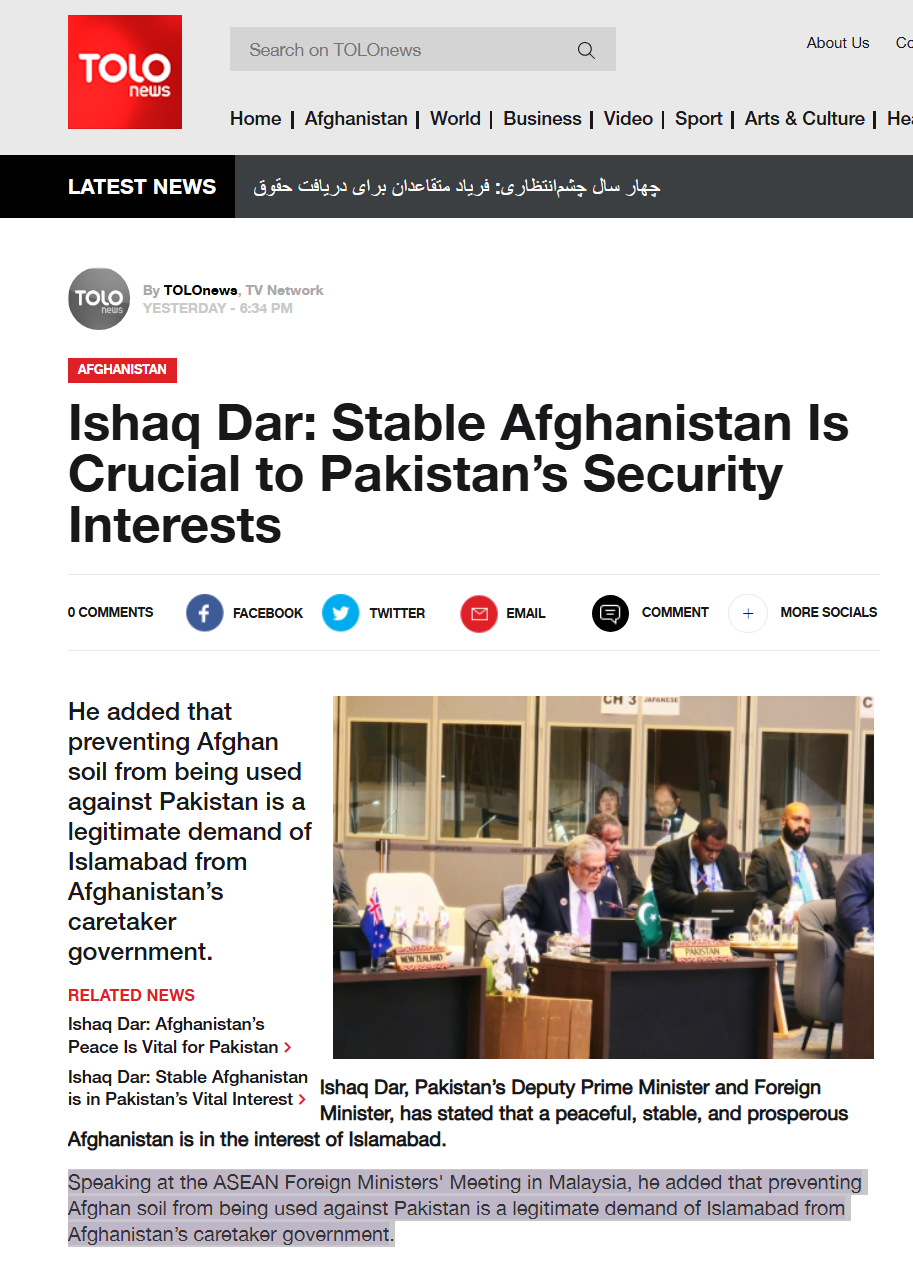
Source: Tolo news
Defense Collaborations and Strategic Partnerships
Effective partnerships are also embedded in the Pakistani defense policy. Over the past few years, it has strengthened ties with China and other allies to modernize its forces. Notably, Pakistan and China completed a counterterrorism drill in late 2024, a three-week joint exercise between the Pakistan Army and the PLA, conducted annually since 2020 (named Warrior-VIII), exemplifies strong military-to-military bonds. This exercise highlights that Islamabad considers China its “most reliable” ally and views China as key in helping Pakistan enhance its security.
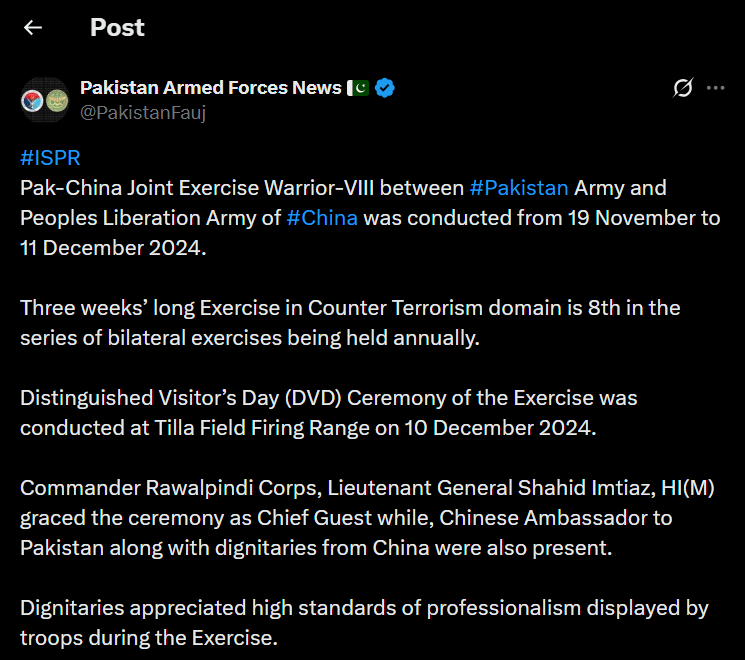
Source: X/@PakistanFauj
China has openly committed to firmly supporting Pakistan’s sovereignty and its fight against terrorism (consistent with Pakistani policy). Similarly, Pakistan has quietly worked to boost regional connectivity, including supporting and expanding the CPEC projects and China-mediated negotiations, reflecting a strategic doctrine of maximizing peace through strength by integrating defense and diplomacy. The military budget has increased to procure new, advanced fighter jets and missiles (mainly Chinese) to establish a credible deterrence against any threat. Official statements emphasize that Pakistan’s strategy is rooted in deterrence and vigilance across all borders: “Pakistan will firmly safeguard its national sovereignty and territorial integrity,” also emphasizing regional stability.

Source: Asia Pacific
Conclusion
The Afghan withdrawal prompted Pakistan to adjust its approach but not withdraw. By strengthening its western border, increasing counterterrorism operations, and forming diplomatic and military partnerships, Islamabad signals that its core strategic interests remain constant. Pakistan continues to present itself as a contributor to regional stability: collaborating with neighbors to rebuild Afghanistan, emphasizing the need to curb cross-border militancy, and demonstrating willingness to handle security issues independently. The official stance is that Pakistan’s defense doctrine, “peaceful and stable region through strength,” has only been reinforced by events in 2021, ensuring that the country remains “completely focused” on all threats while promoting peace.

